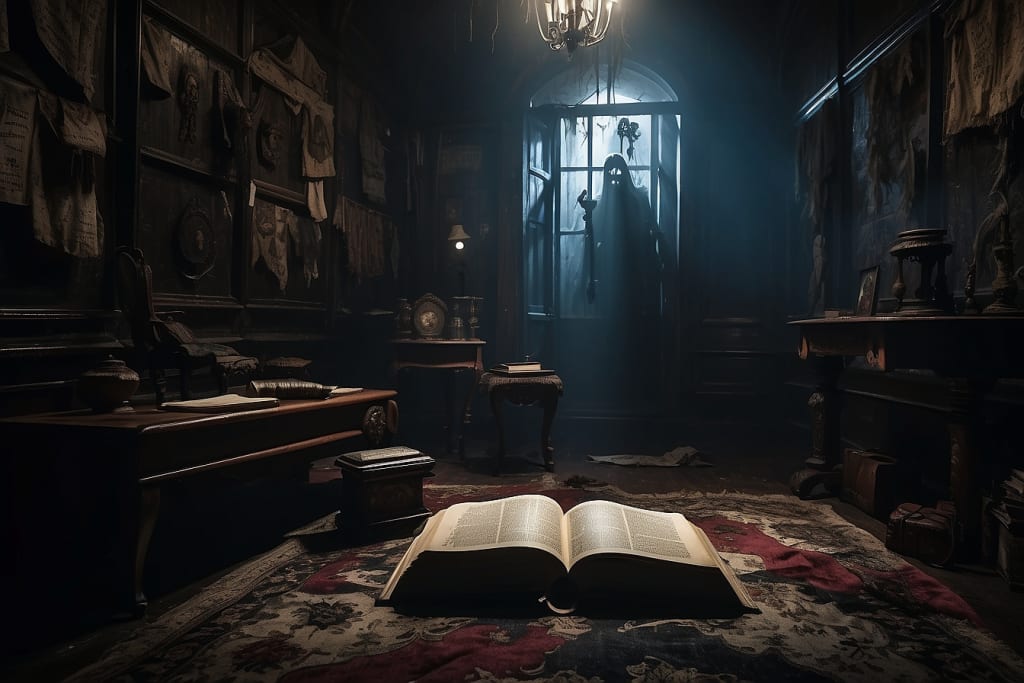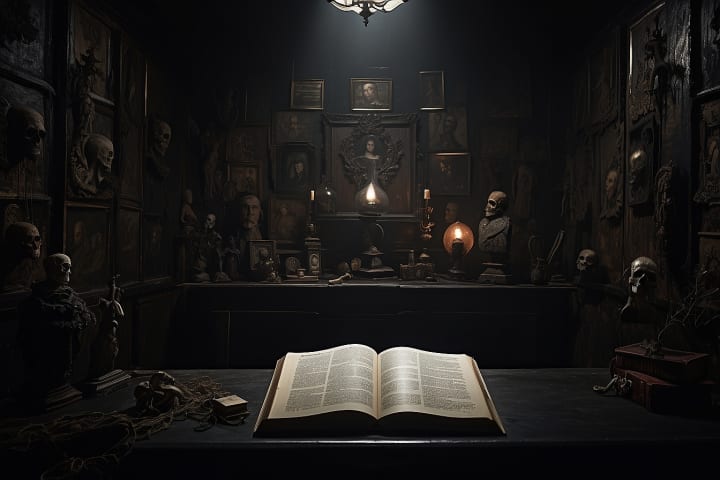Exploring the Psychology of Fear: Why Do We Love Horror?
Unraveling the Enigma: The Psychology Behind Our Fascination with Horror

The human fascination with horror has been a longstanding phenomenon, deeply ingrained in our cultural history. From ancient folklore to modern cinema, the allure of fear has captivated audiences across the globe. But what exactly drives this fascination? Why do we willingly subject ourselves to terrifying experiences that evoke feelings of dread and unease? In this article, we delve into the psychology of fear to unravel the mysteries behind our love for horror.
Understanding Fear:
Fear is a primal emotion, deeply rooted in our evolutionary history as a survival mechanism. It triggers a cascade of physiological responses, preparing our bodies to either confront or flee from perceived threats. However, in modern society where physical dangers are less prevalent, fear manifests itself in more complex ways, often as psychological unease or anxiety.
Despite its negative connotations, fear also holds a peculiar allure. When experienced in a controlled environment, such as while watching a horror movie or reading a suspenseful novel, fear can elicit a sense of exhilaration and excitement. This paradoxical relationship forms the basis of our fascination with horror.
The Thrill of the Unknown:
One of the key appeals of horror lies in its ability to confront us with the unknown. Humans are naturally curious beings, drawn to mysteries and enigmas. Horror plays upon this curiosity by presenting us with scenarios that defy logical explanation, triggering a sense of wonder and intrigue.
Whether it's a haunted house, a supernatural entity, or an unexplained phenomenon, the allure of the unknown compels us to explore the depths of our imagination. By confronting our deepest fears, we seek to unravel the mysteries of the human psyche and confront the existential questions that lie beyond.
The Adrenaline Rush:
Horror movies are notorious for their ability to induce adrenaline-fueled thrills and chills. As our heart rate increases and our senses become heightened, we experience a rush of excitement that is both exhilarating and addictive. This adrenaline rush serves as a form of psychological arousal, providing a temporary escape from the monotony of everyday life.
Furthermore, the physiological responses triggered by fear release endorphins and dopamine, neurotransmitters associated with pleasure and reward. This creates a sense of euphoria that reinforces our desire to seek out frightening experiences, akin to the adrenaline junkie chasing the next thrill.
Catharsis and Empowerment:
Contrary to popular belief, the appeal of horror extends beyond mere sensation-seeking. For many individuals, engaging with horror serves as a form of catharsis, allowing them to confront and overcome their deepest fears in a safe and controlled environment.
Psychologically speaking, exposure therapy is a widely recognized method for treating phobias and anxiety disorders. By gradually exposing individuals to the objects of their fear, under controlled conditions, they can learn to desensitize themselves and regain a sense of control over their emotions.
In the context of horror entertainment, this process of catharsis allows viewers to confront their fears vicariously through fictional narratives. By identifying with the protagonists who triumph over terrifying adversaries, audiences experience a sense of empowerment and resilience that carries over into their own lives.
The Role of Morbid Curiosity:
Human curiosity knows no bounds, particularly when it comes to the macabre and grotesque. From ancient folklore to modern urban legends, stories of death, decay, and the supernatural have always held a morbid fascination for humanity.
In his essay "On the Pleasure of Hating," William Hazlitt describes the peculiar allure of the grotesque, likening it to a form of intellectual stimulation. He argues that witnessing scenes of horror and depravity allows us to confront the darker aspects of human nature, prompting introspection and self-reflection.
Furthermore, the taboo nature of horror serves to heighten its appeal, as we are drawn to that which is forbidden or forbidden. By exploring themes of death, violence, and the occult, horror allows us to confront our deepest fears and explore the boundaries of societal norms.

The Social Aspect of Fear:
The experience of fear is not limited to individual perception but is also shaped by social and cultural factors. Horror movies, in particular, have a unique ability to tap into collective anxieties and cultural taboos, reflecting the fears and anxieties of society at large.
For example, classic horror films such as "Night of the Living Dead" and "Dawn of the Dead" explore themes of societal collapse and the breakdown of order, tapping into widespread fears of nuclear war and social unrest during the Cold War era.
Similarly, contemporary horror films like "Get Out" and "Us" delve into issues of race, identity, and systemic oppression, offering a potent critique of contemporary society. By confronting audiences with uncomfortable truths and challenging the status quo, these films spark important conversations about power, privilege, and social justice.
Conclusion:
In conclusion, the psychology of fear is a complex and multifaceted phenomenon that defies easy explanation. From our primal instincts for self-preservation to our morbid curiosity and social anxieties, there are myriad factors that contribute to our love for horror.
By exploring the unknown, confronting our deepest fears, and engaging in acts of catharsis, we are able to derive pleasure and meaning from the experience of fear. Whether as a form of entertainment, a means of self-discovery, or a vehicle for social commentary, horror continues to captivate and terrify audiences around the world. So the next time you find yourself watching a horror movie or reading a spine-tingling novel, remember that the thrill of fear is more than just a primal instinct—it's a testament to the complexity of the human psyche.
Dear Readers 💙
👏 Enjoyed unraveling the mysteries of our fascination with horror? Don't forget to give this article a round of applause and show your support! If you want to stay updated with more insightful content like this, make sure to follow the author for regular updates. Also, don't miss out on exclusive newsletters packed with exciting insights and updates – subscribe now to stay in the loop! 📩👻
About the Creator
BLESSING COOL
Digital Network Marketer || Crypto Enthusiat || Social Media Influncer || Skilled Serial Entrepreneur || Investor || Motivational Speaker || News Reporter.






Comments
There are no comments for this story
Be the first to respond and start the conversation.